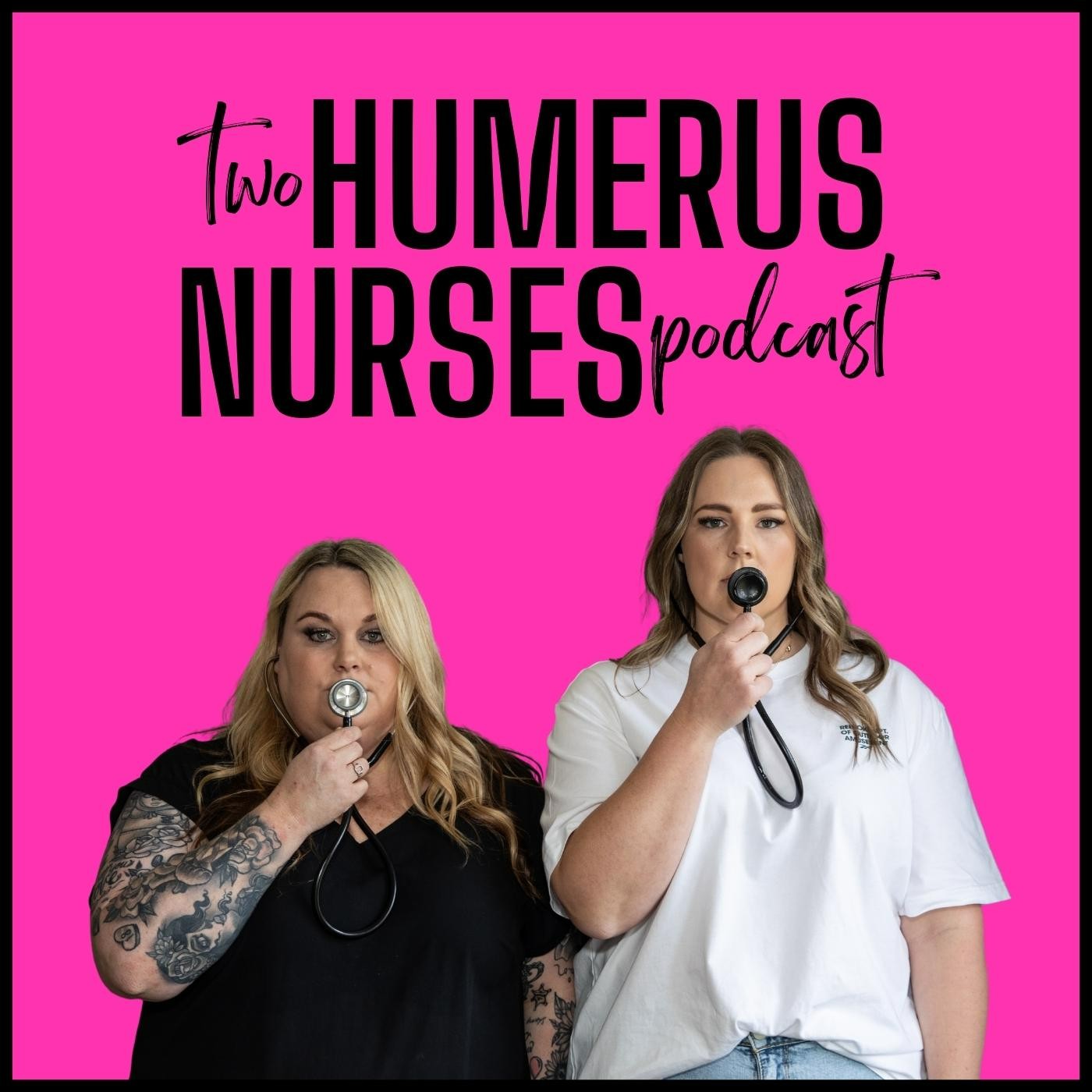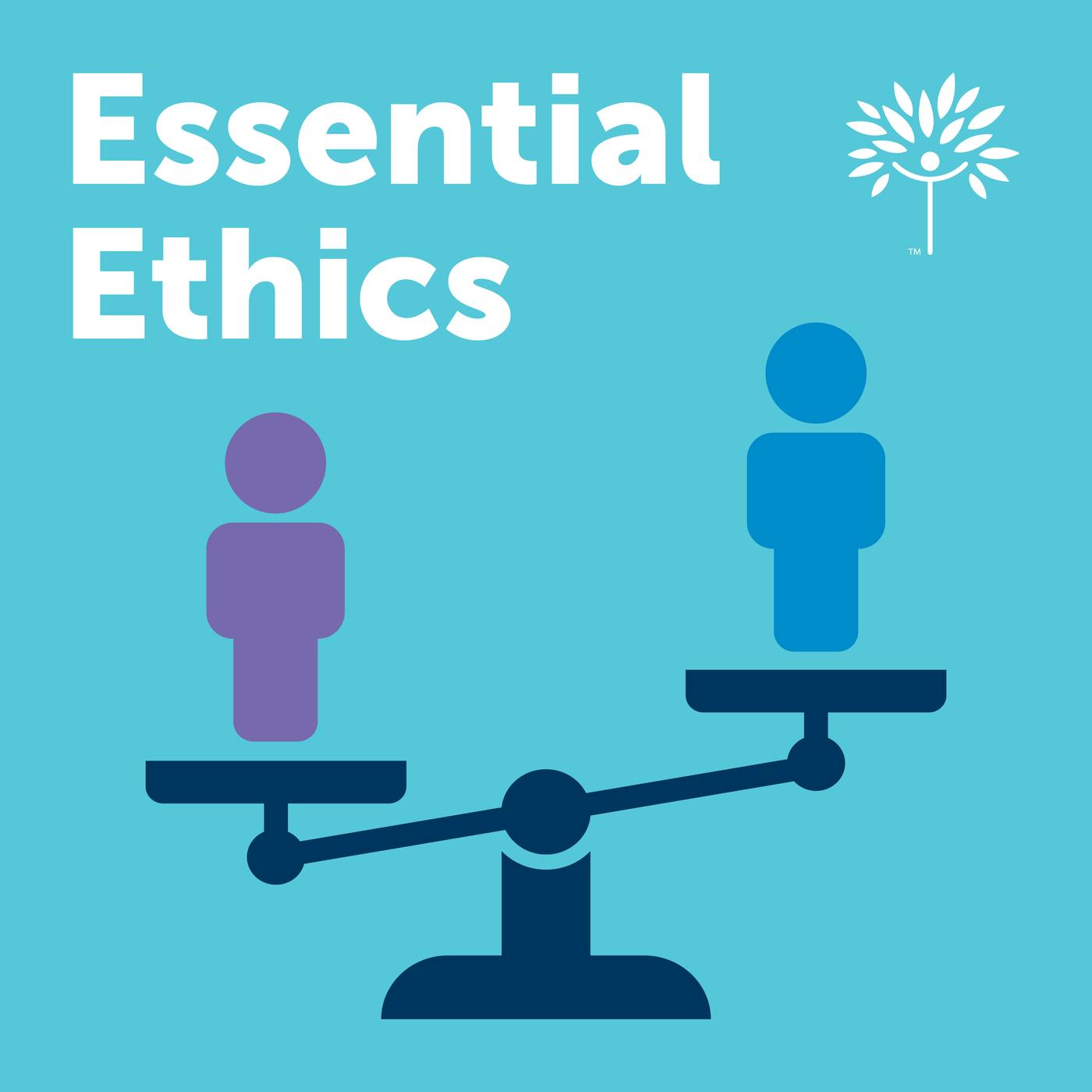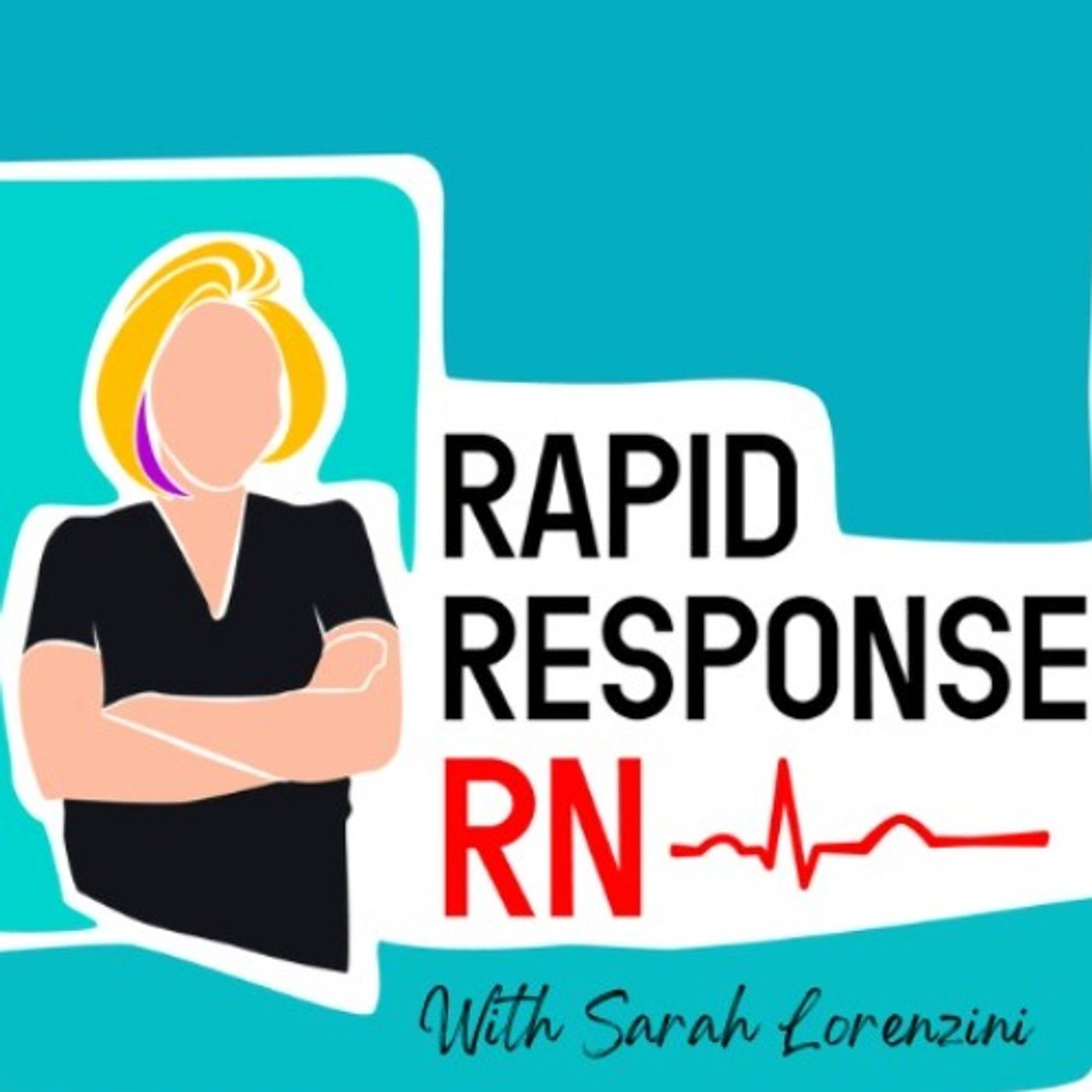
The Conversing Nurse podcast
Are you a nurse curious about the experiences of other nurses? For 36 years, I have only known the Peds/NICU realm but I am intrigued by the roles of nurse researchers, educators, and entrepreneurs. Through conversations with nurses from various specialties, I aim to bring you valuable insights into their lives. At the end of each episode we play the five-minute snippet, just five minutes of fun as we peek into the 'off-duty' lives of my guests! Listen as we explore the nursing profession, one conversation at a time.
The Conversing Nurse podcast
What I've Learned in Three Years of Podcasting
Three years!!! 145 episodes!!! Here's what I've learned. Thank you for being here!
Episodes I discussed:
Preemie Dad, Author and Advocate, Adam Wood
Adult Micropreemie Survivor, Christina Gagnon
Tulare County Fire Chief, Charlie Norman
Project Management For Nurses with Kevin Pannell
Contact The Conversing Nurse podcast
Instagram: https://www.instagram.com/theconversingnursepodcast/
Website: https://theconversingnursepodcast.com
Your review is so important to this Indie podcaster! You can leave one here! https://theconversingnursepodcast.com/leave-me-a-review
Would you like to be a guest on my podcast? Pitch me! https://theconversingnursepodcast.com/intake-form
Check out my guests' book recommendations! https://bookshop.org/shop/theconversingnursepodcast
I've partnered with RNegade.pro! You can earn CE's just by listening to my podcast episodes! Check out my CE library here: https://rnegade.thinkific.com/collections/conversing-nurse-podcast
Thanks for listening!
[00:14] Hello and welcome to my third anniversary episode.
[00:19] My first episode was released on July 28, 2022,
[00:23] and today is July 23, 2025 and this is episode 145.
[00:30] If you've been here from the beginning,
[00:32] thank you.
[00:34] And if you're new here,
[00:35] thanks for finding me and I hope you stay a while.
[00:39] Today's episode will be a synopsis of what I have learned from podcasting for the last three years.
[00:48] When I became a podcaster,
[00:50] and that term still feels a little bit foreign to me,
[00:53] I was trying to do everything by the book.
[00:56] And let me tell you, there are a lot of books out there telling me what I needed to do to be successful.
[01:03] I wanted the perfect microphone,
[01:06] I wanted the perfect headphones, I wanted the perfect release date, and I wanted the perfect Instagram page.
[01:15] But all this perfection seeking was causing me stress and I found that I wasn't enjoying the process.
[01:22] The French writer Voltaire said, "Perfect is the enemy of the good."
[01:27] It took me the good part of the year before I felt like my podcasting skills were good enough,
[01:34] and now I can honestly say I am enjoying the journey as well as the destination.
[01:41] Now, one of the first things people ask me when I tell them about my podcast is, "How much do you make from it?"
[01:48] To which I say,
[01:50] "Did you mean to ask me how much I pay to have a podcast?"
[01:54] I mean, there are hosting fees, recording and editing fees, and advertising fees.
[02:00] Monetizing a podcast does not come quickly or easily unless you're under the umbrella of a podcast production company.
[02:09] For indie podcasters like me, it's a little bit more difficult because in my case, it's just me, myself and I.
[02:18] I vet my guests, I formulate the questions, and then I interview my guests.
[02:24] Then comes the post-production work,
[02:26] the editing, the scheduling, the publishing, and the promotion.
[02:31] But this year in 2025, I became an affiliate with RNegade.Pro.
[02:37] Karen and Wendy at RNegade.Pro have a huge library of podcasts which provide continuing education credits for nurses
[02:47] And I am honored to be in this lineup.
[02:50] It's a novel idea that is shaking up the CE industry.
[02:54] It's easy to find the link in my show notes, so check it out when you can.
[02:59] To date, I have interviewed 105 nurses,
[03:04] and I know this is going to sound strange, but my respect and admiration for the nursing profession is even greater now than when I started.
[03:13] The reasons for this are many,
[03:15] but let's just start with the tenacity of nurses.
[03:20] There's been a lot of discussion about whether nursing is a profession that you are called to.
[03:26] After speaking with so many nurses, I've come to believe that we are indeed called to nursing.
[03:32] This calling can stem from various experiences.
[03:36] Perhaps as a patient who received compassionate care,
[03:40] maybe one of our relatives was a nurse, or we were encouraged by a nurse we admired.
[03:46] Regardless of the origin, there's a profound sense of purpose that drives us, especially during challenging times which,
[03:54] as we know,
[03:55] are a constant part of this profession.
[03:59] One of the toughest times that I have ever encountered in nursing was the COVID pandemic.
[04:05] For the first time, nurses became aware of institutional abuse and many suffered moral injury which caused them to leave the bedside.
[04:14] But I've also realized that nurses are not quitters.
[04:18] Instead,
[04:19] I think of them as shapeshifters.
[04:21] They are flexible,
[04:23] they are adaptable,
[04:25] and they are resilient.
[04:27] I'm convinced nurses are the original MacGyvers,
[04:31] and if you're not familiar with this reference,
[04:34] you're either too young or you miss out on one of the best shows on TV.
[04:38] But the truth is we like a good workaround.
[04:42] And I've been surprised to hear so many nurses talk about the moment they had to pivot and become entrepreneurs to save themselves from leaving the profession altogether.
[04:54] This is the ultimate workaround.
[04:57] Another reason my respect has grown is that the vulnerability of the nurses I have spoken to is astounding.
[05:07] In our day to day lives working together as colleagues, we don't see that, we don't share that.
[05:13] Nurses are good at compartmentalizing their feelings
[05:18] So for them to talk about situations that deeply hurt them or deeply disturbed them,
[05:24] or deeply delighted them has been refreshing to hear.
[05:29] And I haven't only interviewed nurses.
[05:32] About halfway through my second year, some of you, my listeners and some of my guests challenged me to step outside of my comfort zone and talk to those who are not in nursing.
[05:43] Maybe individuals who support nurses in some way,
[05:47] or allied health professionals who work alongside nurses.
[05:52] I take your advice very seriously and started looking at other disciplines.
[05:57] One of the first non nurses I interviewed was the father of a NICU patient,
[06:02] Adam Wood in episode 31.
[06:05] Adam's son Brady was born at just 25 weeks gestation and stayed 135 days in the NICU. While Adam and his wife were there, they had a bird's eye view of how nurses operate and they grew to love and respect many who are still in their lives today.
[06:22] Adam's story as a NICU parent can teach us a great deal because he sees us through a different lens than we see ourselves,
[06:32] and often this feedback can validate or improve our care.
[06:37] One interview I enjoyed from the patient experience was that of the charming Christina Gagnon in episode 42.
[06:45] Christina was born at 25 weeks gestation weighing just 1 pound 8 ounces,
[06:50] and this was in 1986,
[06:53] when micropremies of her birth weight and gestational age only had a 14% chance of survival and of the few that did survive,
[07:03] often suffered the effects of extreme prematurity throughout their lives.
[07:08] Christina shared that she suffers from chronic sinus infections,
[07:12] PTSD,
[07:13] asthma,
[07:14] and a mild communication deficit.
[07:17] But again, her perspective as a patient is so valuable to those of us who provide care. For episode 117, I stepped way outside my comfort zone and interviewed my neighbor Charlie Norman,
[07:29] who just happens to be the County Fire Chief.
[07:33] Charlie and I sat down one early morning in my closet,
[07:37] which is actually my studio,
[07:39] and he taught me about the challenges of firefighters and first responders.
[07:44] As I told him, of course we see you in the community,
[07:48] but we don't really see you in terms of what you do or why you do it and what the challenges are.
[07:54] I learned there are many similarities between nursing and firefighting,
[07:59] and these are just some of them: short staffing, budget shortfalls, long shifts, overtime, sleep deprivation,
[08:09] and mental health challenges from moral injury.
[08:12] All of these affect both professions.
[08:16] One final non-nursing interview I enjoyed was episode 102 with Kevin Pannell.
[08:22] Kevin is a project management specialist.
[08:25] When I first met Kevin on LinkedIn, I thought he could speak expertly to the nursing profession because we are project managers and in the course of our daily work we manage our patients with actionable plans that Kevin outlined for us.
[08:41] It's a great episode. Check it out. I'm sure it will resonate with you. In the future, I plan to do many more non-nursing interviews so be sure to look for those. Three years and 145 episodes is quite a feat.
[08:56] And if you could see me right now, I'm patting myself on the back.
[09:00] All joking aside, if you've been with me for a while, you've heard me say that nurses don't do it for the money or the applause.
[09:08] Those two things were never my goal when deciding to become a podcaster. After 36 years, I had just retired from a profession that I loved and I wanted to learn more about the professionals who worked alongside me and to share their stories with the world.
[09:26] I've also learned a little bit about myself,
[09:29] that I can be consistent,
[09:31] that I can and have overcome significant challenges,
[09:36] and that, like every nurse,
[09:38] I can do hard things.
Podcasts we love
Check out these other fine podcasts recommended by us, not an algorithm.

Two Humerus Nurses Podcast
Kelly & Alisha
Nine One One Nonsense
Sam's Pursuit
The Daily Stoic
Daily Stoic | Backyard Ventures
Essential Ethics
The Royal Children's Hospital, Melbourne
Behind The Shield
James Geering
Rapid Response RN
Sarah Lorenzini

